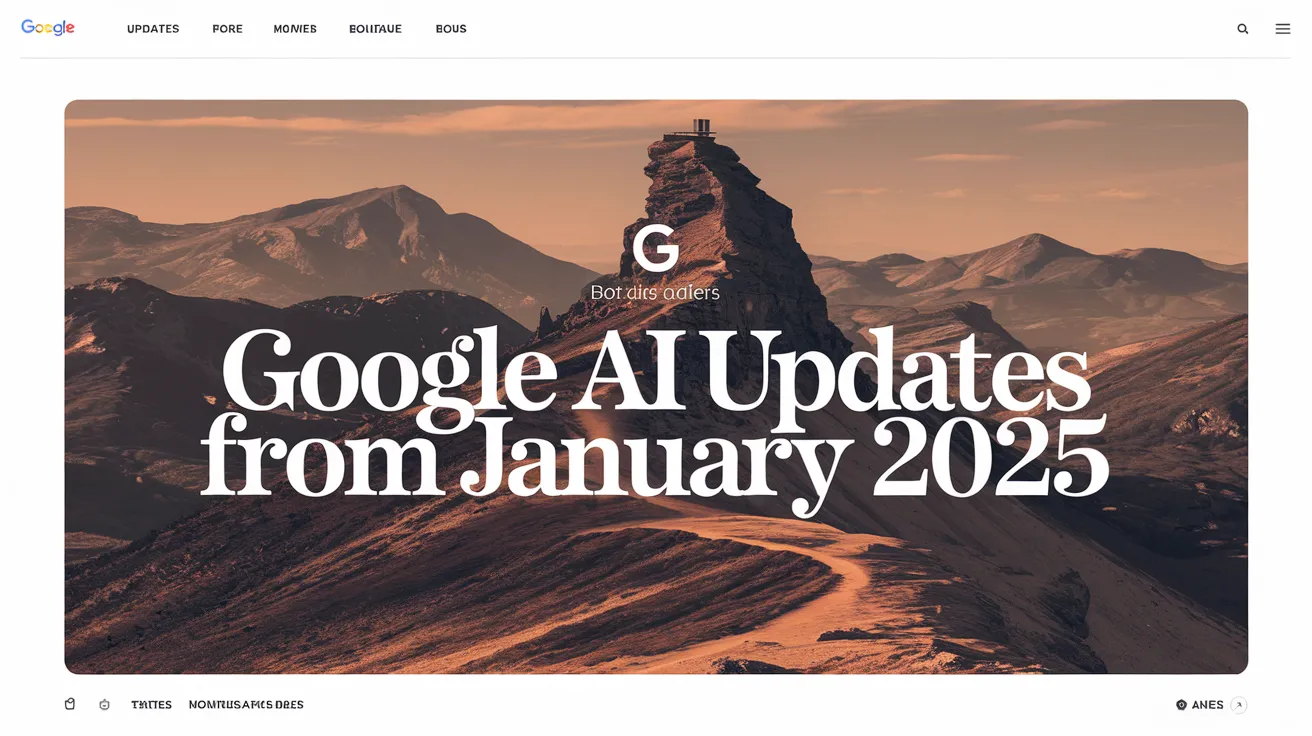Google AI Updates From January 2025

Google has been deeply invested in enhancing machine learning and AI technologies for over two decades, focusing on developing products that improve everyday life. In January 2025, Google rolled out significant AI advancements intended to make these tools more accessible to the public and beneficial across various industries, including education, automotive, and retail.
Among the notable announcements was the launch of Gemini 2.0 Flash, a notable performance upgrade to the Gemini app. This update promises quicker responses and greater capabilities, aiding users in brainstorming, learning, and writing. In conjunction with the Galaxy Unpacked 2025 event, Google revealed enhancements to Gemini Live, which now supports the integration of images, files, and YouTube videos during conversations. This functionality allows users on supported devices such as the Samsung Galaxy S24 and S25 series, as well as Pixel 9, to enrich discussions and organize their thoughts effectively.
Google also highlighted its commitment to educational advancements during its appearance at the BETT education technology exhibition in London. The company showcased ingenious uses of Google AI tools intended to enhance teaching and learning experiences. Special emphasis was placed on how startups are utilizing these tools to personalize education and improve outcomes for students.
In the automotive sector, Google Cloud introduced the Automotive AI Agent, in collaboration with Mercedes-Benz. This innovative product aims to elevate driver experiences by facilitating natural conversations with the vehicle about various topics, thereby going beyond conventional voice control systems.
Businesses stand to benefit from Google’s resources as well, with the introduction of NotebookLM Plus. This tool aids in synthesizing complex ideas and is now included in more Google Workspace plans, promoting business efficiency in various processes including onboarding.
Furthermore, Google highlighted how new AI tools are assisting retailers in optimizing their operations. These AI-powered agents and search functionalities were showcased at the National Retail Federation’s annual conference, revealing their capacity to enhance personalized shopping experiences and product availability.
A retrospective by Google executives shed light on the company’s AI progress in 2024. The report praised significant scientific advances and new models that have been developed to responsibly push the boundaries of what AI can achieve.
Finally, Google.org has initiated a call for applications for its upcoming Generative AI Accelerator program. With available funding of $30 million, this initiative aims to support nonprofits and organizations in harnessing the potential of generative AI to address critical challenges faced by humanity. Applications for this accelerator are open until February 10, 2025, encouraging widespread participation.